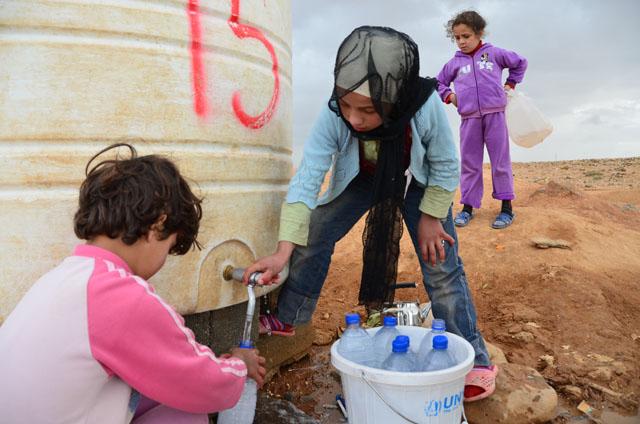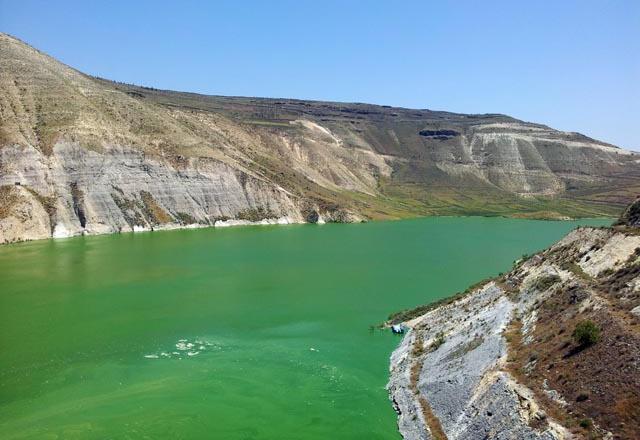You are here
Refugee influx causing drop in water, sanitation service coverage — Nasser
By Dana Al Emam - Oct 18,2015 - Last updated at Oct 18,2015
DEAD SEA — The influx of Syrian refugees into the Kingdom over the past few years has caused a “significant” drop in piped water and sanitation coverage rates, Water Minister Hazem Nasser said Sunday.
Speaking at the Water and Development Congress and Exhibition 2015, Nasser explained that over 93 per cent of the Kingdom was covered by piped water services in 2012 and that sanitation services covered 70 per cent of the country.
However, the influx of some 1.4 million Syrians to Jordan since then decreased the coverage of piped water to 67 per cent and sanitation coverage to only 42 per cent by 2013, the minister said.
The per capita water share in Jordan, which reached 130 cubic metres per year in 2011, is among the lowest in the world, according to Nasser, who cited predictions for water allocations per capita to drop further to 90 cubic metres per year by 2025.
He highlighted the need for international assistance to meet the “critical” needs of host communities as well as the refugees, especially when it comes to rehabilitation of infrastructure, as the impacts of climate change are already clear in the Kingdom, with water scarcity being the most acute effect.
Nasser cited the ministry’s reform measures to enhance accountability and good governance of water resources as a major factor for the continuity of providing water.
Under the theme “Water Security for Sustainable Growth”, the four-day congress is a platform that brings together scientists, researchers, policy makers, the public and private sectors, and financial institutions from all over the world to generate water cooperation and internationally applicable water solutions.
Carried out by the International Water Association (IWA), the congress features the West Asia and North Africa Water Summit.
Water is crucial for societal development and sustainable economic growth, according to IWA Executive Director Ger Bergkamp.
He highlighted an “enormous potential” to address these challenges by implementing available solutions and best practices, in addition to scientific innovation and technologies.
Bergkamp said Jordan is one of the world’s most water scarce countries, adding that the climate change impact currently felt in Jordan will face other countries around the world.
Related Articles
Random pumping of underground water has exceeded the safe yield, particularly after 2011 when the Syria crisis started, according to recent studies on aquifers in Jordan.
The Water Ministry on Monday launched its $750 million water, sanitation and hygiene response plan for Syrian refugees and host communities.
Jordan now ranks as the world’s second water-poorest country, where water per capita is 88 per cent below the international water poverty line of 1,000 cubic metres annually, government officials said on Wednesday.


















